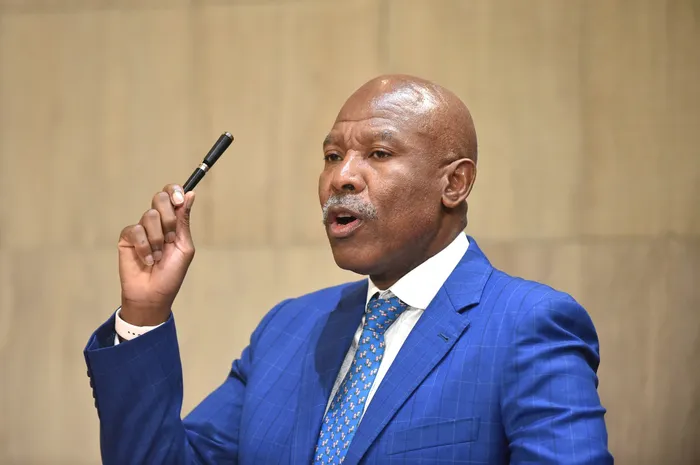
South African Reserve Bank (Sarb) governor, Lesetja Kganyago.
Image: Thobile Mathonsi/Independent Newspapers
Towards the end of the month, the South African Reserve Bank (Sarb) Monetory Policy Committee (MPC) will be meeting to make its latest decision on the repurchase rate (repo rate) for the country.
Despite inflation being the lowest it has been since June 2020, economists widely anticipate that the central bank will keep the repo rate unchanged in May.
Lead economist at KPMG, Frank Blackmore, told Business Report that there is a difference between what the SARB will do and what he thinks the should do.
Blackmore said that the Sarb's MPC made it clear that its decisions are data-dependent, relying on both current inflation readings and future inflation expectations.
"The latest inflation rate of 2.7% is well below the midpoint of their target (4.5%) and even below the lower bound of the 3%–6% inflation target range. This suggests that inflation expectations for 2025 remain muted, which would typically support a further interest rate cut, potentially by 25 basis points in May 2025. Additionally, much of the recent market volatility, driven by uncertainty around tariffs imposed by the US administration, has subsided," Blackmore said.
"Markets have generally returned to levels seen prior to the tariff announcements earlier in the year. Meanwhile, the South African economy is struggling for growth. Initial optimistic forecasts of just under 2% have been revised down to around 1%. In this context, any policy support, such as a rate cut, would be welcome. However, as mentioned earlier, the uncertainty surrounding US tariffs has merely been deferred, allowing time for negotiations with various trading partners," the KPMG economist said.
"As with the March MPC meeting, we may see another decision to hold rates steady until there is greater clarity regarding the outcome of trade negotiations, tariffs, and potential retaliatory measures, both globally and for South Africa. Therefore, although the inflationary backdrop is favourable for a reduction in interest rates, downside risks remain. These risks may justify maintaining the current monetary policy stance until trade and geopolitical uncertainties ease or become more predictable. I therefore lean 60:40 in favour of the MPC holding rates in May," Blackmore added.
Adrian Goslett, Regional Director and CEO of RE/MAX of Southern Africa, said that the benefits of an interest rate cut at this time would outweigh the potential risks that the Sarb is guarding against.
“Reducing the repo rate could boost consumer confidence, increase affordability, and encourage greater economic growth. Lower interest rates translate into reduced monthly repayments on home loans and other debts, putting more money back into consumers' pockets and stimulating broader economic activity. This additional disposable income will positively impact other sectors reliant on consumer spending, driving economic growth across the board,” Goslett told Business Report.
Goslett added that an interest rate cut will send a strong positive signal to international and local investors, reinforcing confidence in South Africa’s economic recovery trajectory, especially following the instability around VAT.
While the possibility of a rate cut is more likely later in the year, the Sarb is at expected to maintain the current rate in the near term.
“If nothing else, consistent interest rates do contribute to a predictable market environment, benefiting all stakeholders involved in property transactions,” Goslett said.
“My advice to buyers is to utilise the stable interest rate period to evaluate your financial capacity and explore finance options, but try to get into the market before interest rates drop, as lower rates typically attract more buyers, leading to increased competition and potentially higher property prices,” he further said.
“For homeowners and real estate agents, staying informed and proactive will be key to navigating the evolving economic landscape,” he added.
Miguel da Silva, Group Executive: Business Banking at TymeBank told Business Report that while headline inflation fell in March, the Reserve Bank's opportunity to cut interest rates appears to be narrowing throughout 2025.
"The Bank’s Monetary Policy Committee have made it clear that they're not only watching local inflation but also keeping a close eye on global events, even hinting at possible rate hikes if global uncertainty increases and impacts the rand further," da Silva said.
"Adding to this complexity, the Bank appears to believe that South Africa's low economic growth stems not primarily from high interest rates, but from structural economic constraints. This suggests that more aggressive rate cuts would do little to boost growth without significant economic reforms," da Silva added.
BUSINESS REPORT